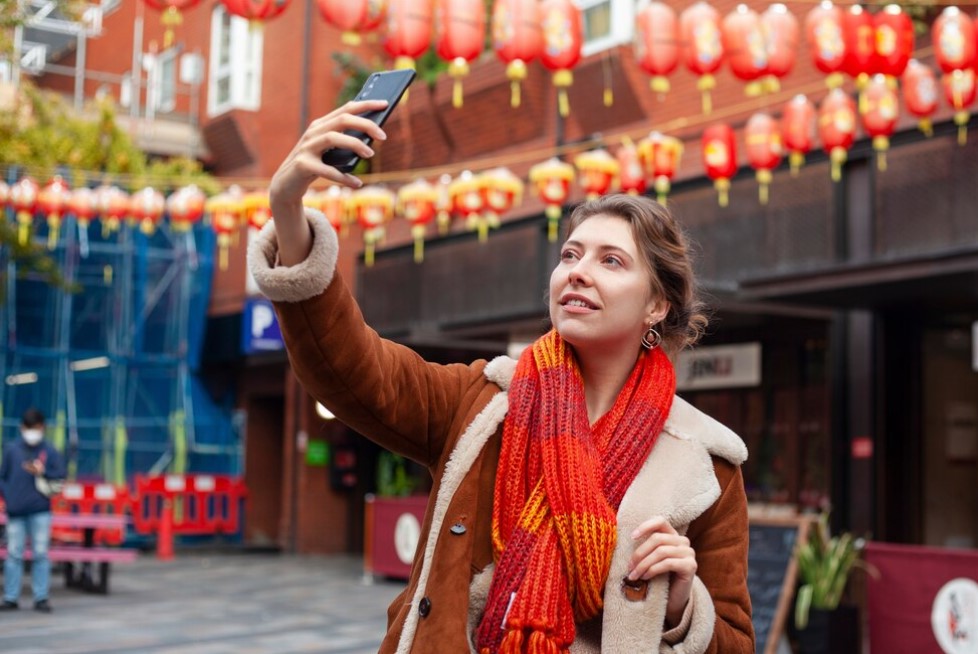The social media landscape in China differs vastly from the one in the West. Most of the social media platforms we use here are censored by the Beijing Government.
Being able to access Facebook and Instagram only through VPNs – virtual private networks.
Even so, other social media platforms such as Vimeo, Whatsapp, Quora are also banned in the Asian giant, and all have been replaced by their Chinese versions.
The top three platforms in China are WeChat and QQ ( instant messaging applications similar to Whatsapp) and Weibo (microblogging platform like Facebook or Twitter) which I will introduce to you in this article along with the most useful statistics and insights to help you prepare your marketing initiatives.
The Chinese government policy on imports – including technology, films…- is very restricted in order to favour local companies over foreign ones to flourish and grow their local economy, so they protect the national economy and boost homegrown talent.
Facebook and other tech giants such as Gmail and Google Maps have been banned and there is a limit on the number of Hollywood movies that can be shown per year to stimulate national production.
The search engine recommendation platform that connects relevant information to users and real trendy data hit the 6 billion figure back in 2016 and even doubled it the year after.
Toutiao slogan: ‘What you create and care about’. The platform functionality is pretty much like Facebook’s, it allows users to write posts, upload videos and share content.
WeChat, the Chinese version of Whatsapp and probably the strongest instant messaging platform has managed to reach 91% of the population, and possess an average of 620 million active users monthly. Developed by the tech giant, Tencent, which is also well known for its games, e-commerce and financial platforms.
Unlike Whatsapp, users can almost get everything on the app Therefore, it’s not surprising it has become the most popular social media platform in China.
WeChat users are relatively young to those on other social media platforms. Needless to say, WeChat is changing and older users are starting to join it. Even though as of 2018, 90% of users are between 18-36 years old and around 100 million users are international or have their residence overseas which means 10% of their total are non-national.
Much as the rest of the world, Chinese people – famous for being hard workers – they also enjoy some social media time.
The first thing most people do in the morning after getting up according to James E. Katz, Professor of Emerging Media at Boston University’s College of Communication.
According to Forbes, Whatsapp users spend an average of 85 billion hours every three months, Chinese people on average spend over an hour a day on their instant-messaging version of Whatsapp.
The average users of Whatsapp spend 23 minutes a day on the application which makes up over a 10 hours a month.
According to a Big Data analytics company, Weibo is the most popular blogging platform in China, the Twitter counterpart functions as a large source of information and trendy content of all sorts. It acts pretty much like Twitter and Facebook, therefore most companies, celebrities and institutions have a Weibo page. It works as an interactive tool to communicate with their audiences and fans.
Weibo beginnings were similar to Twitter as a microblogging platform. Unlike its American counterpart, the Chinese company has managed to grow and surpassed Twitter in the number of users.
The Sina Corp company based in Beijing handles around 100 million messages a day. Its revenue increased hugely in 2017 reaching over 7 billion RMB with a year-to-year growth of 76%.
The chat app giant makes a perfect place for marketers as probably it is the second most popular social media platform in China. QQ, developed by the technological corporation Tencent. QQ services are not limited to messaging only but also provide online games, blogging, movies and shopping. China most frequent activities on social media as an entertaining companion to kill time in a product serving the “boredom economy” Statistic – Fact The main reasons why people use social media are :
The main reasons why people use social media are :
- To stay in touch with what friends are doing
- To remain up-to-date with news and trends
- To kill time
Most like many of us, Chinese people use social media for staying in touch with friends, news and discover the trendiest activities and things as well as fulfilling free time.
When it comes to video socializing such as Youtube to Youku, according to CNNIC, killing time is the main reason why Chinese people watch online video and live broadcasts.
Youku, Youtube made in China – as its name suggests too -, claims to have a database of over 580 million users with 800 million video views a day.
That being said, the video-sharing platform could make a great and effective way for companies to advertise and reach their Chinese audience.
Although it does not carry as much weight as Youtube does in the West, due to its lengthy ads – 60s unskipped ads every time someone watches a video and it has not so much popular among people – and the rise of some of its competitors such as tudou.com and iQiyi.com.
Baidu, the top internet search engine in China or the Chinese Google, is also one of the largest internet companies in the world by possessing 75% of China’s online search market share. Baidu is comparable to Google as the company provides a wide variety of services, most notably internet-related and AI services.
The company also has divisions for Baidu much like Google provide a wide variety of services related to the internet mainly, including self-driving cars, maps, image searching and cloud services.
Meitu like Instagram is a phone application based on the fact of photo editing and sharing. This one is more oriented to create filters for selfies, to cover blemishes and smooth skin tone. It was launched with relative success last year on January in the Western countries.
The main difference with Instagram, apart from being more of a female app. According to the Mirror: ‘ However, Meitu goes a step further, with a “hand-drawn” mode that creates wider eyes and a slimmer jaw, and adds over-the-top effects such as stars, flowers and tears’.
Its popularity is mainly due to the fact that allows users to create ideal images of themselves and helped become the top photo-editing app.




